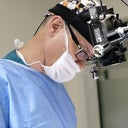The role of food before and after rhinoplasty: The only considerations regarding food for a smooth rhinoplasty recovery are as follows: it may be uncomfortable to chew very tough foods such as a tough steak in the early post up period. So you may wish to stock up on food that is relatively soft. Excessive salt makes someone retain water and may increase swelling, therefore I would avoid excess added salt. Protein is important in the postoperative period for healing so be sure to have a normal amount of protein in the diet. Vegans often do not. I have encountered vegans who because of their lack of iron have low blood counts and in at least two recent cases have had to cancel surgery to allow a patient time enough to build up the blood count to normal prior to surgery. therefore if you are a vegan you should begin at least six or eight weeks prior to surgery to eat foods that have sufficient iron to build up a normal blood count, or take an iron supplement, since if you are anemic due to low iron your surgery might get canceled at the last minute. Nonsteroidal anti-inflammatory drugs such as Advil Motrin, aspirin, etc. can cause bleeding and can remain in the system for 10 days to two weeks. Therefore these drugs should be avoided for at least two weeks prior to surgery and two weeks after surgery. Tylenol is OK and is often the preferred medication for mild pain in the postoperative period. Many supplements also have an effect on reducing the body‘s ability to clot normally and can cause postop bleeding.. Your surgeon will provide you with a list of supplements and homeopathic medication‘s to avoid prior to surgery. Vitamin C complex with bioflavonoids can be helpful in the healing process so it is helpful to begin this a week or so prior to surgery and continue it for the week or two after surgery. Some people feel that Arnica taken before surgery can help reduce bruising. If you are prone to cold sores you should take an antiviral a few days before and a few days after surgery to avoid a break out. Most surgeons will prescribe a narcotic pain medication after surgery. Many patients do not need them and do not take them. But if you do they may cause nausea, so have some Zofran, particularly the sublingual form of Zofran available since it is very effective as an anti-emetic. If you do take the narcotic pain med postoperatively it may also cause constipation so you should have available a stool softener such as Colace since straining may cause bleeding in the postoperative period





